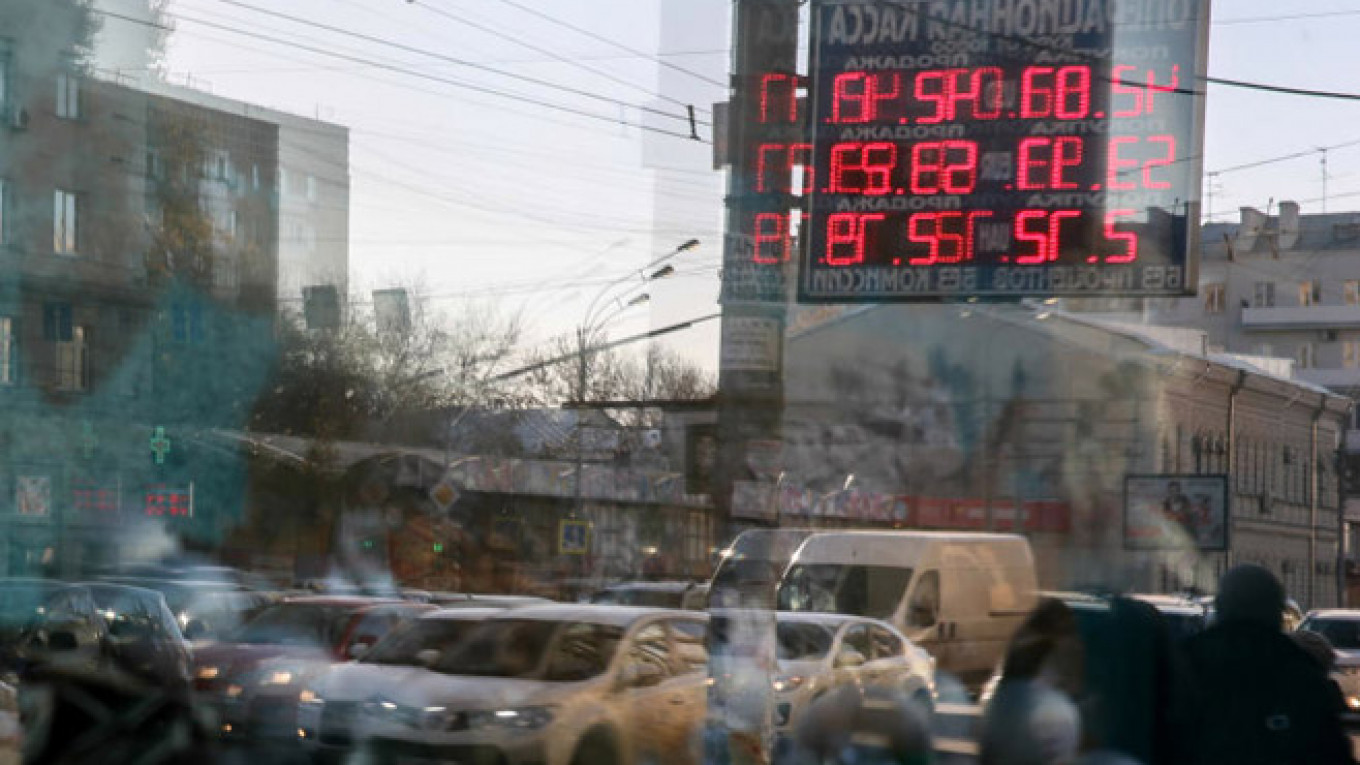The ruble-to-dollar exchange rate dominated headlines this week, falling to a record low of 42 rubles to the U.S. dollar. Considering the extraordinary events of recent months, why would anyone but a historian take any interest in looking back to the spring and summer of 1991 to consider what it can teach us about world order, international security, Russia's history and its path to development?
Why is it appropriate to recall the early years of the 1990s now? The reason is that Russia has experienced three major economic crises in the last two decades, but the current one most closely resembles not the two prior crises of 1998 and 2008, but the first that occurred 20 years ago and that contributed to the collapse of the Soviet Union.
Analysts saw the crises of 1998 and 2008 coming several months in advance, although the public remembers the first crisis as beginning on Aug. 17, 1998, and the second as beginning in October-November 2008, when tensions in the global market quickly spread to the Russian economy and led to a sharp decline in industrial output and a surge in unemployment.
Everyone remembers the date of Aug. 19, 1991, when the siloviki and the conservative, pro-Soviet members of the government attempted to seize power in a coup and then quickly saw their hopes dashed. However, no economic tumult was connected with that event.
Most Russians — ordinary citizens and members of the ruling elite alike — probably identify January 1992 as the "breaking point" when the economic problems that had existed for the previous two years came to a head and the former Soviet economic model stopped working. Though contrary to widespread myth, former Prime Minister Yegor Gaidar did not eliminate the planned economy: It had ceased to function even before he came to office. Thus, the economic problems of the early 1990s had been set into motion long before, through the gradual breakdown of the Soviet economy.
The current crisis is the same sort of "gradual" type, and the economic slowdown actually began long ago. The quarterly growth rate began declining after the presidential elections in 2012 and reached a state of complete stagnation in 2014. The slowdown was quite natural.
First, growth originally began from a low starting point and second, Russia exhausted the sources of its growth in the 2000s — primarily the untapped labor pool and production capacity along with rising oil prices. For the economy to grow further, it needed investments.
However, it is impossible to attract investment without improving public institutions. From an economic standpoint these include contract law, independent courts and a police force free from corruption. Politically, it requires an independent media and government that are accountable to the people.
However, Russia moved in the exact opposite direction with the result that economic growth had almost stopped even before this country became subject to international isolation. The external sanctions and the authorities' increasing confusion and dysfunctional response have led to the start of a crisis like that of 1991, although, again, it is not yet apparent to everyone.
It seems even historians have interesting things to tell us about current affairs.
Konstantin Sonin is a professor at the New Economic School in Moscow and a columnist for Vedomosti.
A Message from The Moscow Times:
Dear readers,
We are facing unprecedented challenges. Russia's Prosecutor General's Office has designated The Moscow Times as an "undesirable" organization, criminalizing our work and putting our staff at risk of prosecution. This follows our earlier unjust labeling as a "foreign agent."
These actions are direct attempts to silence independent journalism in Russia. The authorities claim our work "discredits the decisions of the Russian leadership." We see things differently: we strive to provide accurate, unbiased reporting on Russia.
We, the journalists of The Moscow Times, refuse to be silenced. But to continue our work, we need your help.
Your support, no matter how small, makes a world of difference. If you can, please support us monthly starting from just $2. It's quick to set up, and every contribution makes a significant impact.
By supporting The Moscow Times, you're defending open, independent journalism in the face of repression. Thank you for standing with us.
Remind me later.






